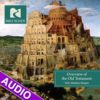December leads us to Christmas. Christmas leads us to Christ Jesus. Christ Jesus leads us to love. It is that simple. In the end, all roads lead to love. Recent events have underscored this in new ways. What we celebrate this month is the life of Jesus of Nazareth that ministered, blessed, healed, taught, and […]
Archive | New Testament
Who knew?! A Link between Grace and Thanksgiving
Who knew that the word ‘grace’ is inextricably tied to Thanksgiving? But doesn’t it make complete sense that a psalm of Thanksgiving is the testimony to answered prayer? Your Thanksgiving gathering will no doubt be so much more than the meal, but the specific giving of thanks for all the many blessings, the divine responses […]
How a Biblical painting can ‘gobsmack’ you
Have you ever had a painting ‘gobsmack’ you, catch you completely off guard? Maybe you can identify with growing up in a home where art was for everyone else. Sure, there were school outings to local museums that were a nice diversion, but weren’t they more for those who could actually draw?! And then […]

Two points you might not know about Genesis
Imagine having gone through one of the most challenging experiences of your life. You might ask (like millions before you have), “Where was God in all of the mess/challenge/disaster”? Now imagine that someone said everything that you had lost (health/spouse/freedom/job/etc.) does not spell the end. Why? Because there is a way out as you respond […]
New Testament Overview Parts 1, 2 & 3 (10 minutes each)
New Testament Overview Videos This is a gift from BibleRoads – a New Testament overview video in about thirty minutes, free. We hope many will take advantage of watching it, tell your friends, use it in Sunday School with your iPad or laptop, start a BibleRoads study program with it providing helpful background, etc. The goal […]

